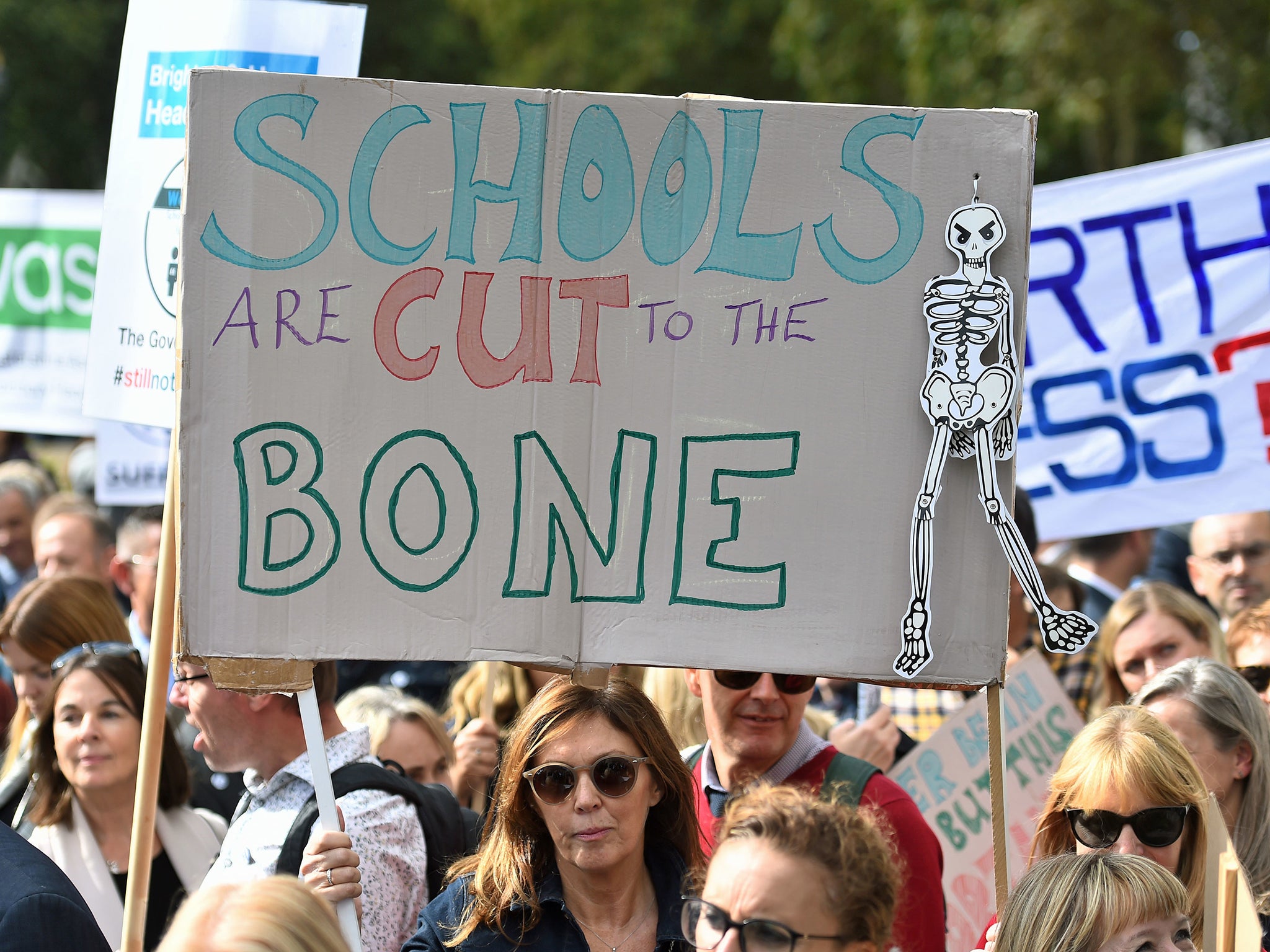Funding boost for sixth forms and colleges is £1.1bn short of cash needed to reverse cuts, IFS says
Report paints 'sober' picture of Boris Johnson's 'hyped-up' announcements, heads' union says

Your support helps us to tell the story
From reproductive rights to climate change to Big Tech, The Independent is on the ground when the story is developing. Whether it's investigating the financials of Elon Musk's pro-Trump PAC or producing our latest documentary, 'The A Word', which shines a light on the American women fighting for reproductive rights, we know how important it is to parse out the facts from the messaging.
At such a critical moment in US history, we need reporters on the ground. Your donation allows us to keep sending journalists to speak to both sides of the story.
The Independent is trusted by Americans across the entire political spectrum. And unlike many other quality news outlets, we choose not to lock Americans out of our reporting and analysis with paywalls. We believe quality journalism should be available to everyone, paid for by those who can afford it.
Your support makes all the difference.A government pledge to boost funding for sixth forms and colleges will leave them £1.1bn short of what they need to reverse cuts felt over past nine years, Institute for Fiscal Studies (IFS) says.
School sixth forms have faced budget cuts of 23 per cent since 2010-2011 and spending for colleges have declined by12 per cent over the same period, the economic think tank report shows.
An extra £400m of government money for further education for next year will still leave spending per student more than 7 per cent down on 2010, report says.
Meanwhile, Boris Johnson’s pledge to boost to school coffers last month will leave schools in England having to cope with an “unprecedented” 13-year funding squeeze.
Schools will get an extra £4.3bn per year in real terms by 2022-23 – which the IFS says will reverse the cuts in schools budgets. But it adds that it will only return funding to 2009-10 levels.
Luke Sibieta, co-author of the report and IFS research fellow, said: “No change over a 13-year period is still a very big squeeze on schools.
"If you'd have told schools that in 13 years' time, they would be getting exactly the same level of funding, they would naturally be quite concerned."
Funding cuts over the past decade have been forced schools to increase class sizes. Since 2010, average class sizes in primary schools have risen from 26 to 27 pupils.
Meanwhile, average class sizes in secondary schools have risen from 20 to 22 pupils, while teacher numbers fell by 20,000 between 2010 and 2018, the IFS report reveals.
Geoff Barton, general secretary of the Association of School and College Leaders, said the IFS report provides a “sober assessment” of the government’s “hyped-up” announcements last month.
“School and college finances will continue to be under pressure despite the increased level of investment,” Mr Barton said.
Angela Rayner, Labour’s shadow education secretary, said: "The Tories have cut money for our schools while slashing taxes for the super-rich.
“After more than a decade of cuts, by 2022-23 our schools still won't even get the same funding that they received 10 years ago, let alone the investment they need to give all our children a world-class education.”
She added: “As the IFS report makes clear, even after huge cuts to sixth form and further education colleges and adult education, yet more cuts are on the way for post-16 education.”
A Department for Education spokesperson said: "We recently announced a £14bn investment in schools - the biggest cash boost for a decade, which the independent IFS has said will restore schools’ funding to previous levels in real terms per pupil by 2022-23.
“Alongside this, we announced a significant real terms increase in funding for 16-to-19 year olds in 2020-21 to make sure we can continue to develop world class education to rival countries on the continent."
They added: "Together this package will give all young people the same opportunities to succeed and access the education that’s right for them regardless of where they grow up.
"The Prime Minister is clear that education is one of his main priorities, and we want a system that boosts productivity, improves social mobility and equips children and adults with the skills and knowledge they need to succeed.”
Join our commenting forum
Join thought-provoking conversations, follow other Independent readers and see their replies
Comments